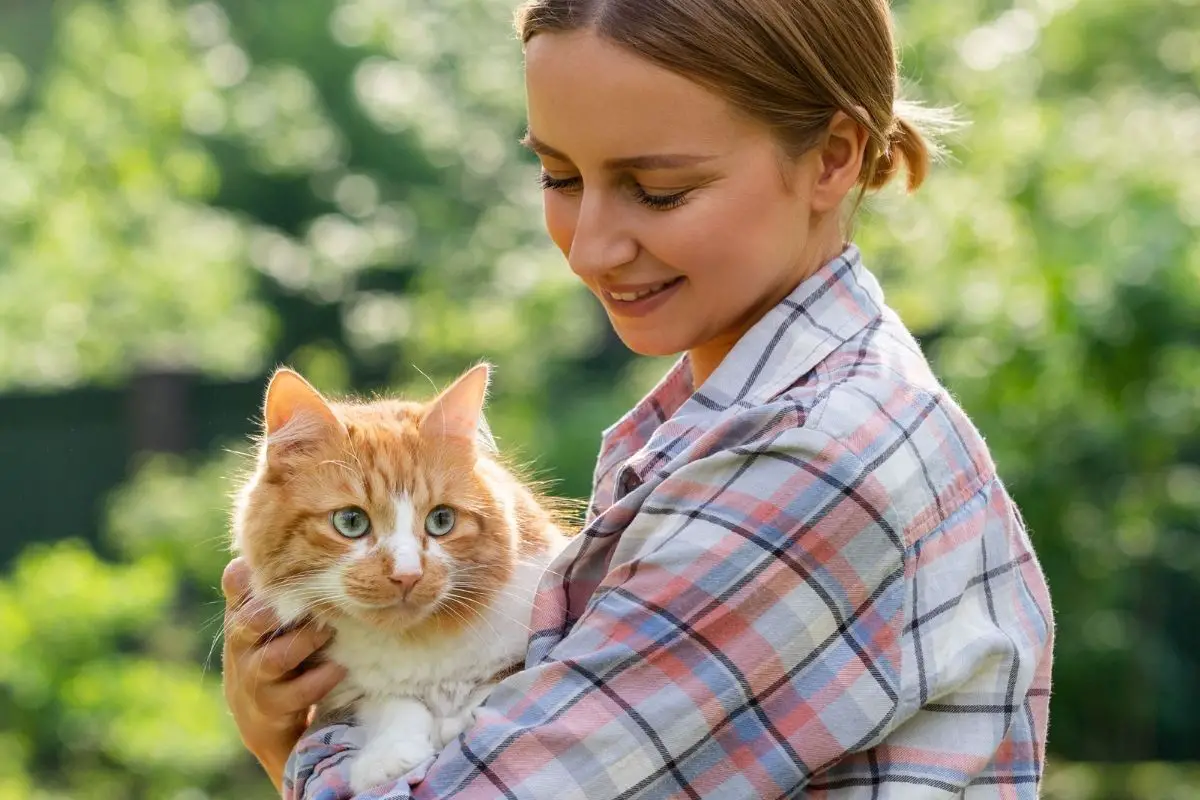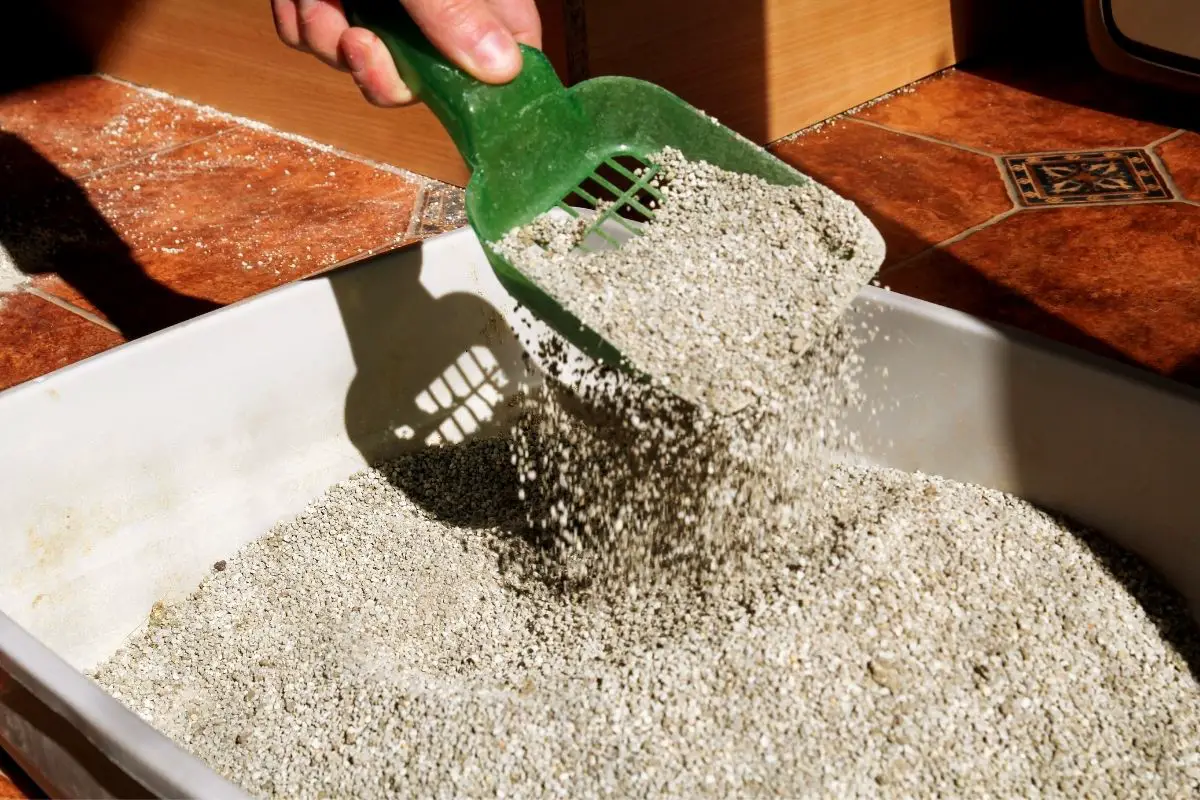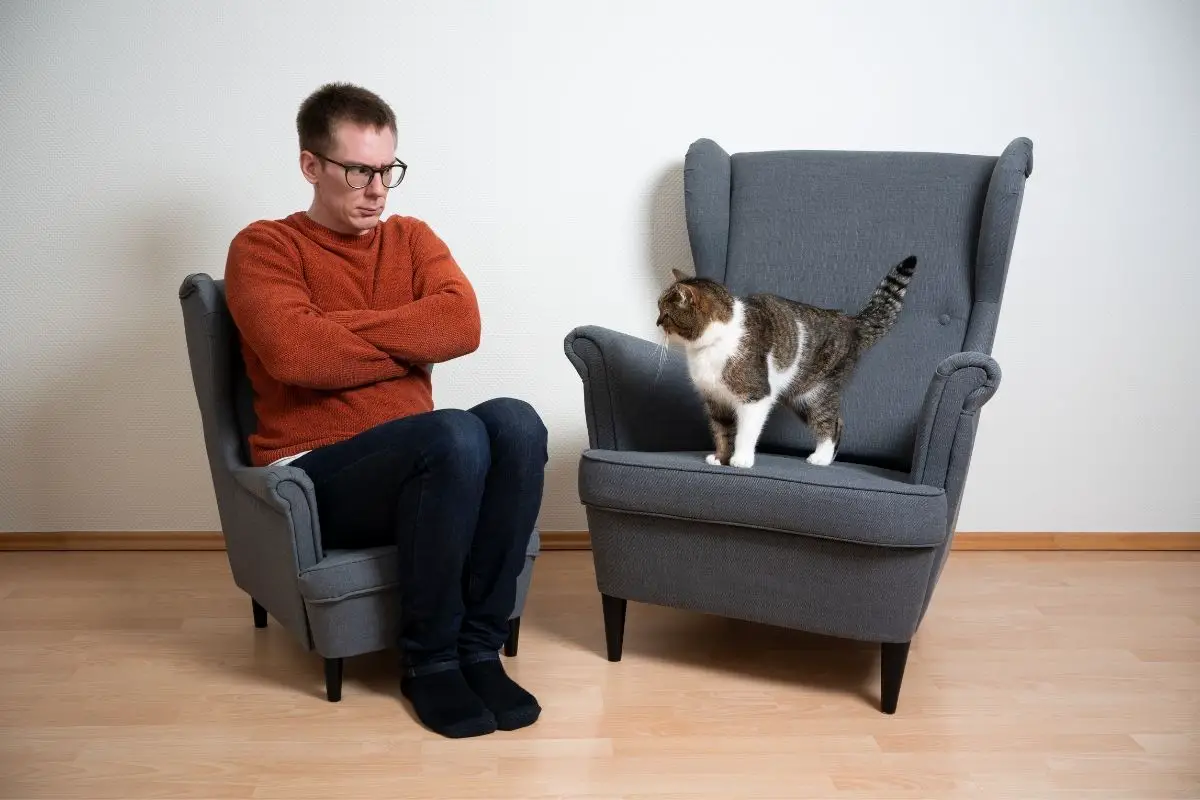Cats are cute, but they also have their share of annoying habits. From scratching furniture to spraying urine, cats are known to be quite mischievous.
If you’ve ever had a run-in with your feline friend, then you already know how frustrating it can be. Did you ever wonder why My Cat Urinated on me?
Some cats love to play and cuddle, but they also enjoy sleeping and relaxing. However, other cats are prone to certain health problems or behavioral issues. This is why it’s important to know the causes behind these behaviors.
Once you identify the problem, you’ll be able to take action to prevent further incidents from happening.
One of these problems is that cats are prone to peeing on their owners or family members.
When your cat does this, it can be very frustrating. You may smell bad. Plus, this urine could ruin an outfit, meaning that you need to get changed.
However, you should be considerate toward your cat and avoid becoming annoyed with them. After all, it may not be their fault.
There are several reasons why your cat has done this. Here are some of the primary reasons.
Contents
The Main Reasons For Your Car Peeing On You

1. They Are Not Used To Being Petted
Not all cats like being petted. It makes them feel uncomfortable and stressed out. As such, if your cat is not used to getting attention from humans, it will likely start urinating on its owners.
This issue is particularly common among cats that have newly entered a household.
For example, if you have recently adopted a cat, you may experience this problem.
To prevent this from happening, you should ensure that your cat is comfortable before you begin petting them.
2. They Are Marking Their Territory
Cats are territorial. They use their urine as a way of marking their territory. If your cat feels threatened by another animal, they will spray their urine in order to scare off the intruder.
Other cats will be able to detect this urine, warning them that your cat has claimed this territory.
In the home, this normally only occurs if there is another cat or other animal in the household.
For example, if you own two cats, one of them may pee to claim their space. They may feel shy or threatened by this other animal.
Therefore, they mark their territory to ward off the rival cat. This is a problem that many multi-cat households face.
If your cat has urinated on you, it could be their way of claiming you as their own. Alternatively, it could be a method of signifying that your home is their territory.
If you want to stop this from happening, there are a few things that you can do. First, make sure that your cat is comfortable around people.
Second, try to keep your pets separated when possible. If your cats do not get on, you may want to separate them.
An alternative solution is to try to reintroduce your cats in the hope that their relationship will be less tense. However, this does not always work.
Finally, make sure that your house is safe for your cat. If they do not feel anxious, they may be less likely to mark their territory. This is because they will already feel comfortable in the space.
3. They Are Trying To Get Attention
If your cat is trying to get attention, it may be doing so through urination. Cats often urinate when they are feeling stressed or unhappy.
For example, if they are sick, they may urinate more frequently than usual. Similarly, if they are bored, they may also urinate more often.
As such, if your cat starts urinating on you, it could mean that they are trying to get your attention. They may be trying to tell you something.
For instance, your cat may simply want more attention. This can be done by petting them more regularly.
Alternatively, they may be trying to communicate with you about an issue. For example, if your cat pees on you while you are sleeping, it could be a way of telling you that they need to go outside.
4. They Are Scared
Like humans, cats can react in a variety of ways when they are scared.
Some common cat reactions to fear include hissing, positioning their ears back, and their hairs standing on end. A less common way for your cat to react to fear is by peeing.
If your cat is on your lap and they hear a loud noise, they could unintentionally pee on you.
Alternatively, a cat may urinate on you when they hear a firework, as many pets find them terrifying. This reaction is caused by stress.
As such, it is important that you calm down before you interact with your cat. You should try to make your home as calm as possible.
Though it is not always possible to protect your cat from fear, since this can be caused by outside influences, you can make your household as relaxed as possible.
5. They No Longer Control Their Bladder
As cats begin to grow in age, cat anatomy changes they tend to have less control over their bladder. This means that they may start urinating more frequently.
If a cat no longer controls its bladder, it may accidentally urinate on its cat owner.
Though this can be annoying, you should not get too angry with your cat. After all, this may not be their fault.
If you begin to notice that your cat is losing control over its bladder, you may want to talk to your vet. They may be able to suggest some medicines.
6. They Are Suffering From UTI
UTI, meaning urinary tract infection, is quite common in cats, especially among male cats.
If a cat has not had enough water, it can develop an infection. As such, if you see your cat urinating frequently, it could be due to a UTI.
A UTI can cause your cat to experience pain. This can lead to them urinating more frequently. In addition, you may notice blood in the urine.
Alternatively, your cat may not be able to pee. If you begin to notice any of these symptoms, we recommend taking your cat to the veterinary clinic as soon as possible.
Vets can give your beloved pet a variety of treatments, such as antibiotics. Alternatively, you might need to change your cat’s diet. Your vet will be able to recommend certain brands that will aid your cat.
7. Their Litter Box Is Full
Litter trays are brilliant devices in which cats will automatically use when they need to relieve themselves. Sometimes, this may require training.
These boxes are designed to lessen odors in your home, particularly if you utilize scented litter.
When a litter box becomes full, most cats will use other places to eliminate it. They may relieve themselves wherever they can, including on you.
To avoid this, you must check the letterbox often. Change it whenever it has been used.
Not only will this eliminate unpleasant odors in your home, but it will mean that your cat is much more likely to use their litter tray or box.
On the other hand, your cat may not appreciate their litter box. Cats may simply not like the litter that has been used.
As a result, you may want to experiment with different types of litter to find what your cat prefers.
Namely, you may want to try scented or unscented litter. Instead, you can also experiment with clumping litter.
If your cat has been doing inappropriate elimination, there could be a problem with the kitty litter. Not only this, but you may need to try a few different types of litter boxes.
8. They Have Bladder Stones
Bladder stones are another reason why your cat may be relieving itself inappropriately. When a cat has stones, it cannot empty its bladder completely.
You may also observe some blood in the urine. As a result, they may urinate on you and/or other objects.
If you think that your cat has bladder stones, you may need to take them to a vet as quickly as possible.
A veterinarian will be able to examine your cat and determine whether they have stones. Alternatively, you may want to consult your vet about how to treat your cat.
Some medications may help to dissolve the stones. This will allow your cat to urinate less painfully.
How To Prevent This From Happening

Nobody wants their cat to pee on them. Fortunately, there are ways to prevent this from happening. This means that you do not have to worry about getting cat urine on yourself.
On the other hand, it will be hard to prevent the problem if you do not know what is causing it.
Therefore, we recommend trying to ascertain why your cat is peeing on you before you attempt to treat it.
Here are some general steps that you can implement:
Clean The Litter Box
A fresh and clean litter box will be more inviting to your cat than one that is dirty. If you notice that your cat is using the litter box frequently, then you should regularly clean it out.
After cleaning the box, make sure that it is dry. Then, place litter in it.
If you have been experiencing unpleasant smells in your home, we suggest using scented litter. It will make it easier for your cat to recognize the litter box. Plus, it will limit the odors in your home.
Change The Litter Regularly
You should change the litter box after every time it is used. This way, you will ensure that the litter remains fresh and odor-free.
In addition, you can create a rota of when the litter needs changing. This is a great way for getting your family involved in looking after the cats.
Place The Litter Box In An Optimal Location
Your cat’s litter box should be placed where they can easily reach it. For example, you might consider placing it near the door so that they can get to it quickly.
Alternatively, you may place it in a quiet area of the house that is out of the way. This will allow your cat to go to the bathroom in peace.
If you place the litter tray in a central part of the house, such as the living room or kitchen, then guests may notice it immediately. This could result in them experiencing bad odors.
Make The Cat Feel At Home
It is important that your cat feels comfortable in its new surroundings. This includes making sure that the litter box is clean and that they feel safe.
To achieve this, you may want to provide your cat with toys, food, water, and other items. These things will make them happy and content.
Relaxed cats are far less likely to urinate on you than those that feel anxious or stressed.
Keep Your Cats Away From Other Pets
Cats naturally like to keep their distance from other animals. They may view dogs and other pets as potential threats.
Therefore, you should keep your cats away from other pets. This will reduce the likelihood of them having inappropriate elimination. This is because it is sometimes caused by fear or stress.
Take Your Cat To The Vets Routinely
By taking your cat to the vet frequently, you can see whether they have any medical issues. This will help you identify the cause of the problem sooner rather than later.
Plus, it will give you the opportunity to address any underlying health problems.
For example, if your cat has a bladder infection, a vet will be able to diagnose this. As a consequence, they can give you medicine that will prevent this problem, allowing your cat to pee properly.
Use Appropriate Products
There are many products available on the market that claim to stop your cat from peeing on you.
However, these products often contain chemicals that are harmful to your cat. Instead, many people prefer using natural remedies.
Frequently Asked Questions
What Is Spraying?
Spraying is when urine comes out of the body to mark territory. Cats tend to do this on vertical surfaces, such as walls.
By doing this, your cat will signify that they own a certain area. This will act as a warning to other cats, who are far less likely to invade an area that has been sprayed.
How Can I Stop My Cat From Doing It Again?
If your cat continues to spray on you, there are several ways to solve the issue.
First, you can try to train them not to do this. You should ensure that you thoroughly wash any areas that have been sprayed by your cat.
Finally, you can put up some barriers around your home. This will help to block off any areas, namely vertical surfaces, where your cat may try to urinate.
Should I Punish My Cat For Peeing On Me?
Punishing your cat for urinating on you is unlikely to work. It can even backfire.
When you punish your cat, they may become more fearful and anxious about going to the bathroom. This means that they may start peeing on you again. Instead, you should try to get to the root of the problem.
Once you have done this, you can start to solve the problem. As tempting as it may be to discipline your cat when they have got urine on you, we strongly advise resisting this urge.
Final Thoughts
While you think about Why My Cat Urinated on me, it is critical If you notice that your cat is spraying on you, then you need to take action immediately.
There is no reason to wait until your cat pees on you again before addressing the situation. Doing so can only prolong the problem.
Hopefully, by following our advice, you can find out why your cat has been peeing on you. This allows you to alter their behavior.



